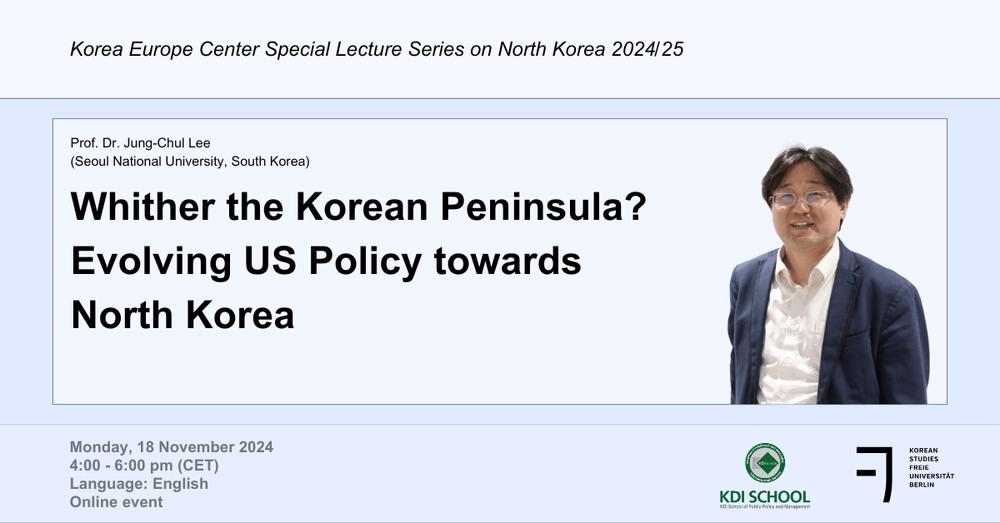Whither the Korean Peninsula? - Evolving US Policy towards North Korea
KEC Special Lecture Series on North Korea - Prof. Dr. Jung-Chul Lee (Seoul National University, South Korea)
"Whither the Korean Peninsula? - Evolving US Policy towards North Korea"
This lecture examines recent shifts in U.S. policy toward North Korea under the new administration. During the Biden administration, the U.S. adopted a stance often referred to as "Strategic Patience 2.0," or a "none-for-none" approach—essentially a non-engagement policy with North Korea. As is widely known, North Korea has recently deployed its forces to the Donbas region, strengthening its military alliance with Russia. In response, South Korea and the U.S. have expressed strong criticism and are reportedly preparing countermeasures. This evolving situation prompts the question: will a new crisis emerge on the Korean Peninsula? This lecture aims to provide a comprehensive understanding of the potential implications of these developments.
Lecturer:
Prof. Dr. Jung-Chul Lee (Seoul National University, South Korea)
Dr. Jung-Chul Lee is a Professor in the Department of Political Science and International Relations at Seoul National University, concurrently serving as the Chief of the Center for Unification Studies at IPUS (Institute of Peace and Unification Studies, SNU). Before embarking on his research year, he held positions as the Deputy Director of IPUS and Chair of the Interdisciplinary Program for Peace and Unification Studies at SNU. Professor Lee has contributed as a policy advisor for the Ministry of Unification and various other government departments of the Republic of Korea. He also served as an auditor at the Korea Institute for National Unification (KINU) and as a member of the Advisory Group to the Speaker of the National Assembly of the ROK. He currently holds the position of absentee director at the Defense Agency of Technology and Quality. Professor Lee has authored numerous books and articles on North Korea and its nuclear issues, including “Kim Jong-un’s Foreign Policy: A Revisionist State, an Alliance with China or a Third Way?” (book chapter, 2022), “Sanctions for Nuclear Inhibition: Comparing Sanction Conditions between Iran and North Korea” (Asian Perspective, 2019), and “Making Sense of North Korea: How to Respond to Pyongyang’s Charm Offensive,” (Foreign Affairs, 2015).
For online participation, please register: https://fu-berlin.webex.com/weblink/register/rf143cc2afcc28757a0a5bcef37990acb
